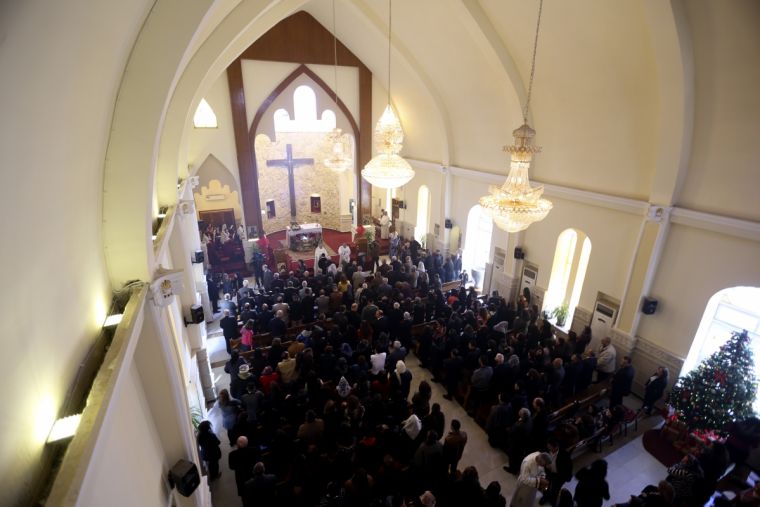Iraqi Christians feel little hope about returning to their homeland after ISIS onslaught

It seems that the arrival of the Islamic State in Iraq might mean the end of the country's Christian community who have lived there peacefully for two thousand years.
After their trauma with ISIS, some Iraqi Christians now say that they might never return to their homes.
In August last year, the Islamic State, called Daesh by its Arab-speaking opponents, seized control of Qaraqosh, Bashiqa and other Assyrian towns of the Nineveh Plain which hold a large concentration of Christians, all of whom had to run for their lives in the face of ISIS barbarity.
Prior to this, in June, the jihadist group captured Mosul and reportedly gave the Christians in the city a number of choices: either convert to Islam, pay a special tax, leave or be executed. Almost all Christians chose to flee the city.
"We will never go back," Taif Hanna, an engineer from Mosul who has taken shelter at Sacred Heart of Jesus Catholic Church in Naour, said according to the Catholic News Agency. "ISIS tried to kill us."
Jalal Yako, a Syriac Catholic priest, told the Independent that "everything has changed since the coming of Daesh. We should flee. There is nothing for us here."
Yako believes that Iraq is no longer a place for Christians not only because of the savagery of ISIS, but also because of the failure of authorities to defend the community against the militant group.
The priest said, "Before Qaraqosh was taken by Daesh, there were many slogans by the KRG (Kurdistan Regional Government) saying they would fight as hard for Qaraqosh as they would for Irbil. But when the town was attacked, there was nobody to support us."
Taif's 52-year-old father, Maan George Hanna, thinks he will never return home because he will never feel secure again.
"I will leave all my history there because of the terrorism," he lamented. "We have no trust in the government or anything. Never, forever."
Iraqi Christians who were forced to leave their homes are mostly cared for by churches and helped by Catholic groups such as Caritas Jordan. When before they had their own land, car, and job, now they have to endure living in cramped quarters with other refugees.
"We left with these clothes," Hanna said, pulling at his shirt. "We left our home, we left our car, we left all the memories of the children. My own home."
According to the Catholic News Agency, there were 1.6 to 1.8 million Christians in Iraq before Saddam Hussein's execution in 2006. Since then, the figures have dwindled to an estimated 400,000 to 450,000.
The Chaldean Archbishop of Irbil, Bashar Warda, believes that even if ISIS is driven back, half of the Christians who have been displaced would choose to sell their properties as quickly as possible and relocate.
Father Rifat Bader, pastor of Sacred Heart of Jesus Catholic Church in Amman, echoes the archbishop's sentiments.
He said, "The Iraqi man and woman feels sadness because something died in his heart. He doesn't want to go home. He loves his homeland, his country, but what happened really injured him in the [deepest part of] his heart."











